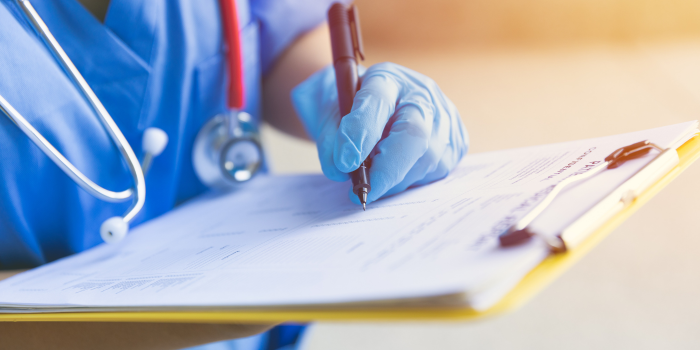Article by Kenneth Rafferty III, Esq.
In Pennsylvania, expert testimony is required in medical malpractice cases. Toogood v. Owen J. Rogal, D.D.S., P.C., 824 A.2d 1140 (Pa. 2003). Consider this hypothetical: You represent the Defendant in a medical malpractice case. You retain a medical expert with years of experience. Your expert drafts a report, and you produce it to Plaintiff. Then, Plaintiff claims your medical expert has a bias for the defense and is a “hired gun,” and sends discovery requests for their tax returns. Now, your medical expert wants out. In essence, the Plaintiff vetoed your expert. No other expert wants to take his or her place and suffer the same fate, either. Can Plaintiff do this?
In Cooper v. Schoffstall, the Supreme Court of Pennsylvania held that it was unduly burdensome to require a non-party medical expert witness to produce personal financial records. 905 A.2d at 496 (vacating orders directing the production of tax records); (“…[W]e find that there are procedures supporting adequate trial preparation on the issue of potential bias of non-party expert witnesses less burdensome than production of personal financial records…”); see also Dougherty v. Heller, 138 A.3d 611, 629, n. 10 (Pa. 2016) (acknowledging the import of the privacy interest in federal tax returns).
In Cooper, the appellee sought discovery of a non-party expert medical witness’s financial records to probe potential favoritism toward the defense. Cooper, 905 A.2d at 485. At a conference before the trial court, the appellee produced materials supporting the contention that the non-party expert witness “performed abundant defense medical examinations (on the order of 200 to 400 in some recent years), derived substantial income from this work, and issued written reports containing repetitive, predictable, defense-favored observations and conclusions.” Id. at 485. According to the appellee, the non-party expert witness considered payment for defense medical examinations to represent a “big ticket item” in terms of his income and was evasive in answering questions regarding the monetary significance of the same. Id. at 491.
The Supreme Court of Pennsylvania believed that, before discovering the financial records of a non-party expert medical witness to facilitate an inquiry into potential bias, the proponent of discovery must first show cause. See Cooper, 905 A.2d at 492. Cooper therefore established a high threshold for establishing cause for supplemental discovery into potential bias of a non-party expert witness, stating that the proponent must establish reasonable grounds to believe that the witness may have entered the professional witness category. Cooper, 905 A.2d at 494–95. The Cooper Court further held that the proponent of the discovery should demonstrate a significant pattern of compensation that would support a reasonable inference that the witness might color, shade, or slant his testimony in light of the substantial financial incentives. Id. at 495. The Pennsylvania Supreme Court reasoned that cause in Cooper was supported when the non-party expert witness performed 200 to 400 independent medical examinations. Id. at 495 (emphasis added).
In keeping with the notion that financial-related expert discovery should be the least burdensome and intrusive as possible, the Cooper Court believed that the appropriate entry point, upon the showing of cause, was a deposition by written interrogatories under Pa. R.C.P. 4004. Cooper, 905 A.2d at 495. The Court explained, however, that there may be situations that required the production of documents, e.g., where the expert witness has been evasive or untruthful to the written discovery. Id. at 495. However, in most cases, written interrogatories would suffice. Id. at 495. Ultimately, Cooper held that the production of personal financial records was unduly burdensome, and vacated the orders granting production. Cooper, supra, 905 A.2d at 496
In sum, no, a party cannot request your medical expert’s tax returns outright. Before inquiring into the issue of potential bias of a medical expert, a party must first show cause. Then, after a sufficient showing of cause, a party can request a deposition by written interrogatories. Only as a last resort, and with a “strong showing” that the expert has been evasive or untruthful, can the opposing party request document production.

